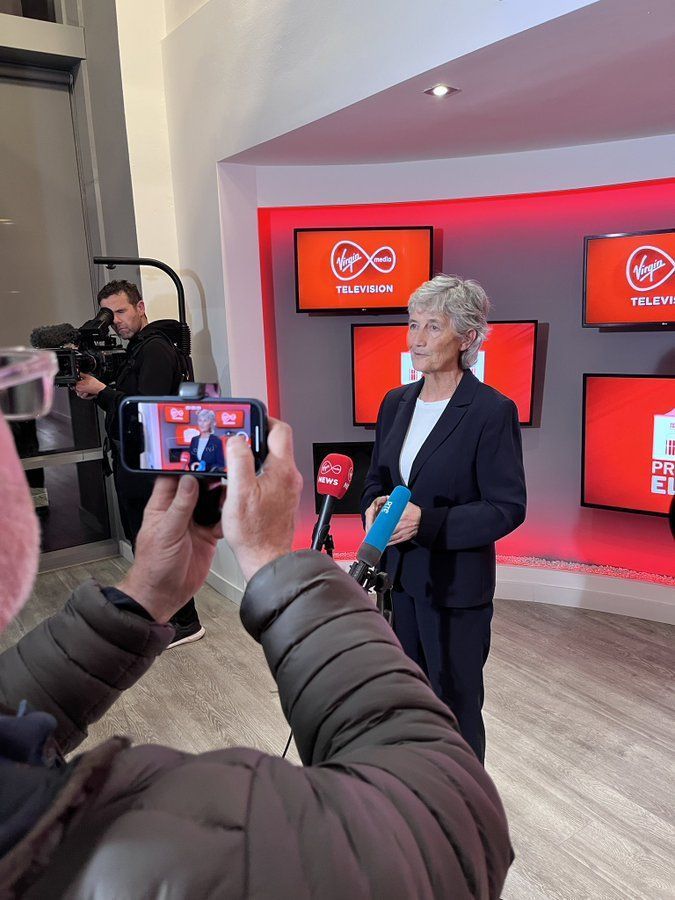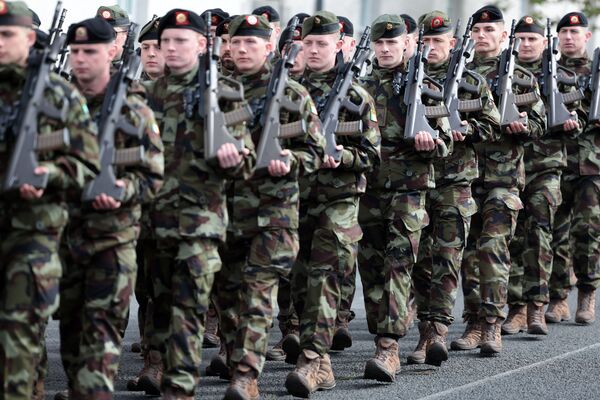TWO of the most interesting moments (so far) in the presidential campaign were different but similar.
In 2018, Catherine Connolly hired Ursula Ní Shionnain as administrative support in Leinster House for work with the Oireachtas Committee on the Irish Language. What made this a stick with which Heather Humphreys’ team thought they could beat the bejasus out of Connolly was that Ursula Ní Shionnain had previously been convicted in 2014 by the Special Criminal Court for firearms possession and ammunition, arrested in 2012 in what was described as an operation involving disguises, a stolen van, and weapons near a firearms dealer. She served about four and a half years of a six-year sentence. Connolly claimed she did “checks” before hiring: she said she spoke with members of a prison visiting committee, political figures who knew Ní Shionnain’s background, and believed that she had rehabilitated.
And that charge finally fizzled out when Éamon Ó Cuiv, former deputy leader of Fianna Fáil and Dev’s grandson, weighed in and agreed with Connolly that Ursula Ní Shionnain was a perfect fit for the job and no risk of any kind.
Having run out of steam in the real world, Humphreys' supporters moved into the makey-up world. Supposing, Connolly was asked, supposing someone had been convicted of rape was to come looking for a job in the Áras, would she employ such a person? Connolly replied that she’d need to think about it, and twenty-four hours later said she’d not employ someone who was on the sex offenders register. Naturally Heather and Co said if they’d been asked to give a job to a former rapist, they wouldn’t have needed twenty-four hours before they said no.
There are a number of interesting issues involved in this charge-and-counter-charge. The first is the makey-up element, and it’s interesting because it’s absurd. The Newstalk interviewer might as well have asked if Connolly would have employed a narco terrorist, a war criminal or a person given to taking off their clothes and singing ‘Wrap the Green Flag Round Me, Boys’ at the crossroads at midnight. None of them has happened, and dreaming them up to ask a presidential candidate suggests a sad degree of bias and even derangement.
The more interesting aspect of the charges is the question of recidivism – that having performed a crime once, that person is likely to commit that crime again. The research shows that over half of imprisoned offenders go on to reoffend after release. The answer to why this is is crucial.
When bishops shifted priests charged with sexual abuse from one parish to another, they were loudly condemned. The charge was that the predators inevitably would repeat their crimes in the new parish. This is the view of ill-informed people and is contradicted by studies into sexual re-offence. One example: in the Republic of Ireland, a study from the Irish Penal Reform Trust (IPRT) showed that among prisoners released, those convicted of sex offences had one of the lowest recidivism rates compared to other types of crimes.
Which kind of cuts the ground from under the feet of the many critics of the Catholic Church. What’s more, repeated research in different countries shows that four per cent of Catholic clergy are guilty of sexual crimes, while that of other groups of any kind have been somewhere between two and five per cent. In other words, at least in terms of sexual abuse, Catholic priests are no worse and no better than the rest of us.
The charge tossed at Catherine Connolly was misinformed: it implicitly assumes that a rapist is more likely than the ordinary Joe to commit rape again. It was also malicious, in that it dreamt up a situation and then asked the presidential candidate what she’d do. I don’t blame Connolly for saying she’d have to think about it. It takes time to absorb the malice displayed by some of the media.
But maybe we should still be grateful to the Newstalk presenter who raised the question. The criminal justice system in Ireland and in the western world generally is appalling. It focuses on punishment when it should be focusing on rehabilitation. And beyond even that, we as a society should take 24 hours to think about the fact that poverty plays an foundational part in crime. Locking up people, especially poor people, produces a vicious circle from which it’s very, very hard to escape.







